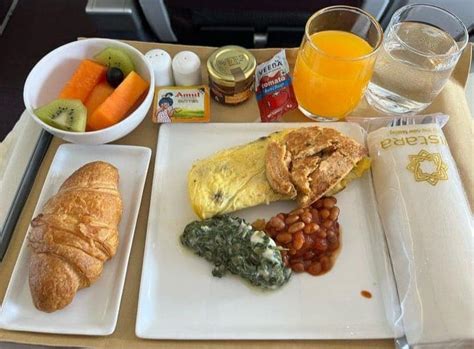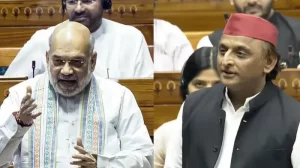
A recent controversy has erupted regarding the labeling of meals as “Hindu” and “Muslim” on Vistara Airlines flights, igniting fervent discussions on social media. The issue was highlighted by a passenger, Aarti Tikku Singh, who raised concerns about the airline’s food labeling practices.
Aarti Tikku Singh, who traveled on a Vistara flight from Srinagar to Jammu, voiced her disappointment over the airline’s classification of vegetarian meals as “Hindu food” and non-vegetarian options like chicken and mutton as “Muslim food.” In her social media post, she questioned the rationale behind these labels, challenging the assumption that all Hindus are vegetarians and all Muslims are non-vegetarians. Singh criticized the airline for what she deemed an imposition of communal labels on food choices.
In a bold statement against this practice, Aarti booked both a “Hindu meal” and a “Muslim meal” to protest what she saw as arbitrary categorization based on religious identity. Her post quickly garnered attention, with many users expressing support and outrage over the airline’s labeling practices.
The controversy has sparked extensive debate across social media platforms. Many users pointed out that the food codes used by airlines are standardized within the aviation industry and not specific to Vistara. This clarification was supported by several industry professionals who sought to provide context to the situation.
Sanjay Lazar, CEO of Avialas Consultants, took to social media to explain the standard international aviation food codes. He clarified that the term “Hindu meal” (HNML) does not exclusively denote vegetarian food; it can also include non-vegetarian options not prepared according to halal standards. Conversely, “Muslim meal” (MOML) refers to non-vegetarian food prepared in accordance with halal guidelines.
Former Jet Airways CEO Sanjeev Kapoor also weighed in on the issue, stating that these food codes are standardized across the global aviation industry and are not unique to Vistara. He emphasized that all airlines operating on a Global Distribution System (GDS) basis utilize these codes. However, Kapoor suggested a need to update or modernize these labels to avoid misunderstandings and unintentional offenses in today’s diverse society.
In response to the controversy, Aarti has urged the Ministry of Civil Aviation to take action, arguing that such labels foster unnecessary communal tensions and could be replaced with more neutral terminology. As of now, the Ministry has not publicly responded to these appeals.
The debate surrounding the “Hindu” and “Muslim” food labels on Vistara flights underscores a broader conversation about cultural sensitivity and inclusivity within global aviation standards. As social media continues to amplify passenger experiences and grievances, it remains to be seen whether airlines and regulatory bodies will take steps to revise and modernize these long-standing codes to better reflect contemporary societal values.






